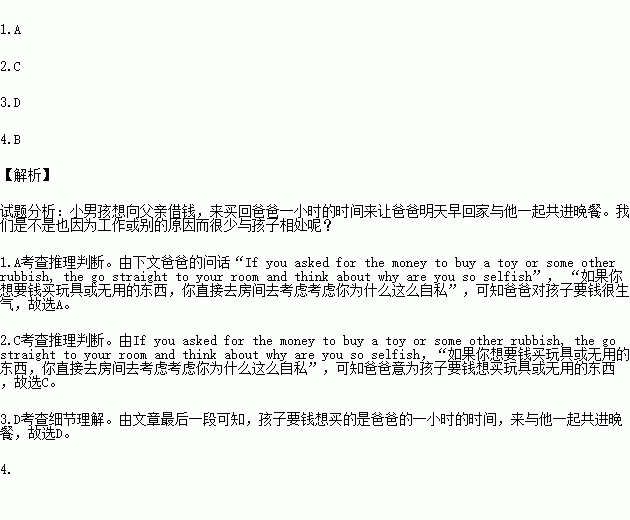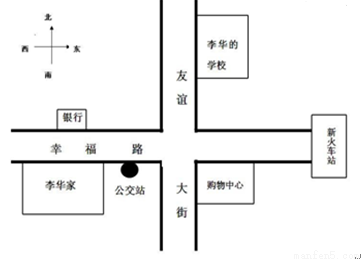题目内容
A man came home from work late, tired, to find his 5-year-old son waiting for him at the door.
“Daddy, how much money do you make each hour?”
“If you must know, I make $20 each hour.”
“Oh,” the little boy answered, with his head down. He thought for a moment, looked up and said, “Daddy, could you lend me $10?”
The father was furious, “If you asked f or the money to buy a toy or some other rubbish, the go straight to your room and think about why are you so selfish (自私)!”
The little boy went to his room no words and shut the door. After a short while, the father calmed (平静) down, and started to think, “Maybe he really needs to buy something and he didn’t really ask for money very often.” So he went to the little boy’s room.
“Sorry!Maybe I was too hard on your just now.” said the man, “Here’s $10.”
“Oh, thank you Daddy!” he said happily. Then the boy took out some coins. When the father found that the boy already had money, he got angry again.
“Why do you want more money since you already have some?” the father shouted angrily.
“Because I didn't have enough, but now I do.” The little boy replied, “Daddy, I have $20 now. Can I buy one hour of your time? Please come home early tomorrow. I would like to have dinner with you. ”
1.In this passage, the underlined word “furious” means ______.
A. very angry
B. quite happy
C. too excited
D. a little nervous
2.At first, the father refused to lend the money because ______.
A. he thought the boy wanted to keep the money for himself.
B. he did not have enough money at that moment
C. the thought the boy would buy something of no use
D. the boy always borrowed the money from him
3.The boy wanted to buy ______ with twenty dollars.
A. a new novel for himself
B. a nice present for his father
C. a toy for his own birthday
D. one hour of his father’s time
4.From the passage, we can infer that the boy’s father______ .
A. often played with his son
B. spent little time with his son
C. didn’t love his son at all
D. often came home early
 名校课堂系列答案
名校课堂系列答案


